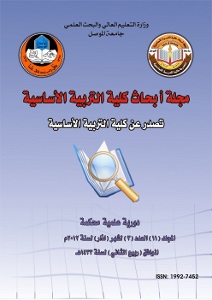The effect of peer teaching and flexible grouping strategies on skill achievement of the most important offensive skills in handball.
Abstract
Identify impact of peer teaching and flexible grouping strategies on skill performance of key offensive skills in handball.Identify differences in post-test results among three research groups in skill performance of key offensive skills in handball.There are statistically significant differences between pre- and post-test results of three research groups in skill performance of key offensive skills in handball for first-year students, favoring post-test.There are statistically non-significant differences between post-test results of three research groups in skill performance of key offensive skills in handball for first-year students.Researchers employed experimental method due to its suitability for nature of research and its procedures. Research population was deliberately selected from first-year students in Department of Physical Education and Sports Sciences at College of Basic Education, University of Mosul, for the academic year 2023-2024. Total number of students was 190, distributed across six classrooms. research sample was selected through a simple random lottery method, consisting of:Classroom (A), representing first experimental group, where independent variable was peer teaching strategy.Classroom (C), representing second experimental group, where independent variable was flexible grouping strategy.Classroom (E), representing control group, where independent variable was traditional teaching strategy used by course instructor.Researchers used statistical package (SPSS.V25) to apply appropriate statistical methods, primarily paired sample t-test, one-way analysis of variance (ANOVA), and the Least Significant Difference (LSD) test. Results showed superiority of all three research groups (both experimental and control) in skill performance of key offensive skills in handball .
